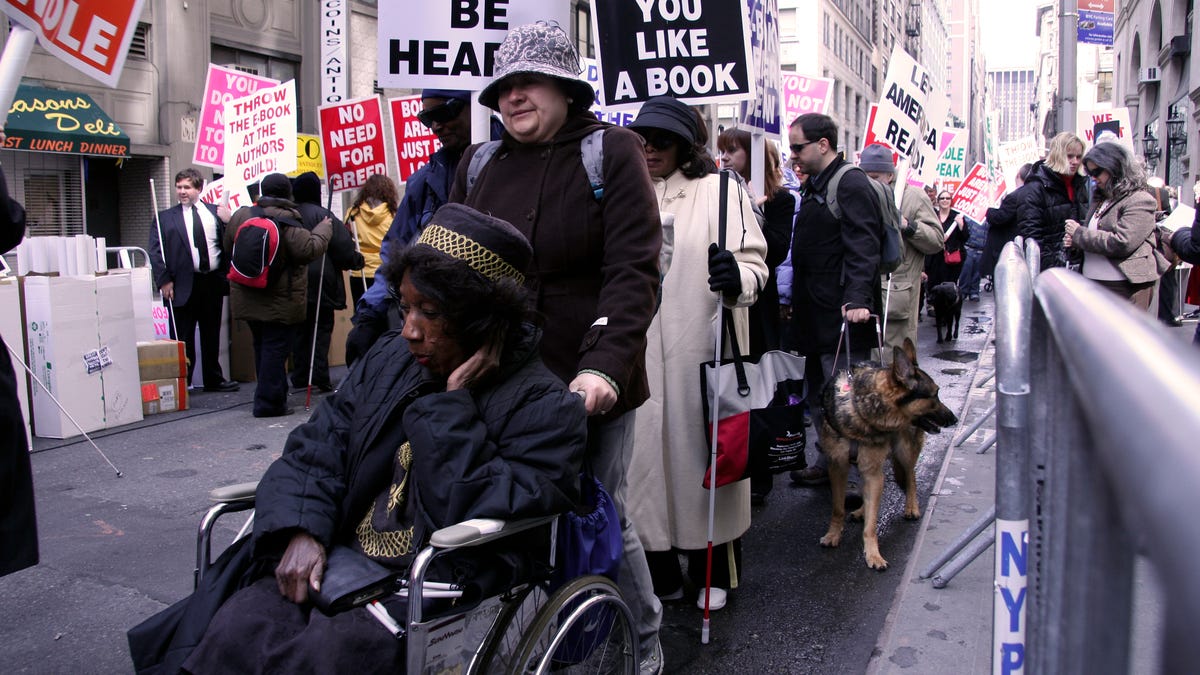Advocates for blind protest loss of Kindle's voice function
Supporters of the visually impaired protest outside New York offices of Authors Guild and demand the group drop its opposition to Kindle's text-to-speech function.

The controversy regarding the text-to-speech function offered by Amazon.com's Kindle 2 digital book reader appears to be heating up again.
Groups advocating for the blind and reading disabled on Tuesday held a protest at the Manhattan offices of the Authors Guild. The guild was very vocal in opposing the text-to-speech technology in the Kindle. The group, which represents 4,000 authors, argued that the Kindle infringes on copyright and could hurt audio book sales.
The whole debate seemed to be over in February when
Text-to-speech enables computers to read text in a lifelike voice.
The protest of 150 and 250 participants, according to reports, was held "in hopes to reverse the Guild's threat to disable text-to-speech from e-books for the Kindle 2," according to a statement from the National Federation of the Blind (NFB).
Paul Aiken, executive director of the Authors Guild, said his organization came up with a plan that would have given the blind and visually impaired access to the Kindle's voice function regardless of whether publishers chose to disable the technology.
"Authors want everyone to read their books," Aiken said. "We've been strongly supportive of the rights of the blind and disabled to obtain books...We know how to balance the interests, to make sure there is special access to books for people who need it but still protect markets that authors depend on. Audio-books is one of those markets."
The NFB rejected the guild's proposal calling it "burdensome" for the blind to prove their disability or "pay extra for the text-to-speech version."

